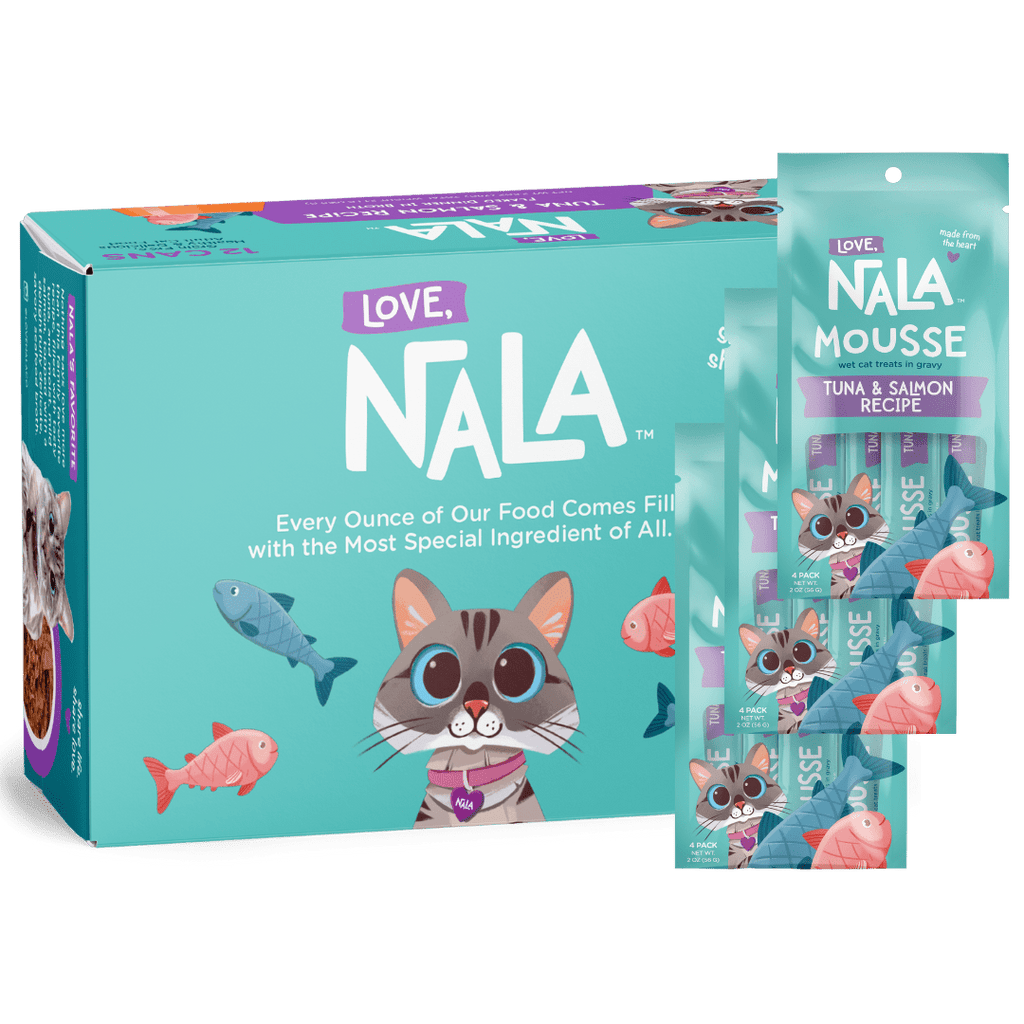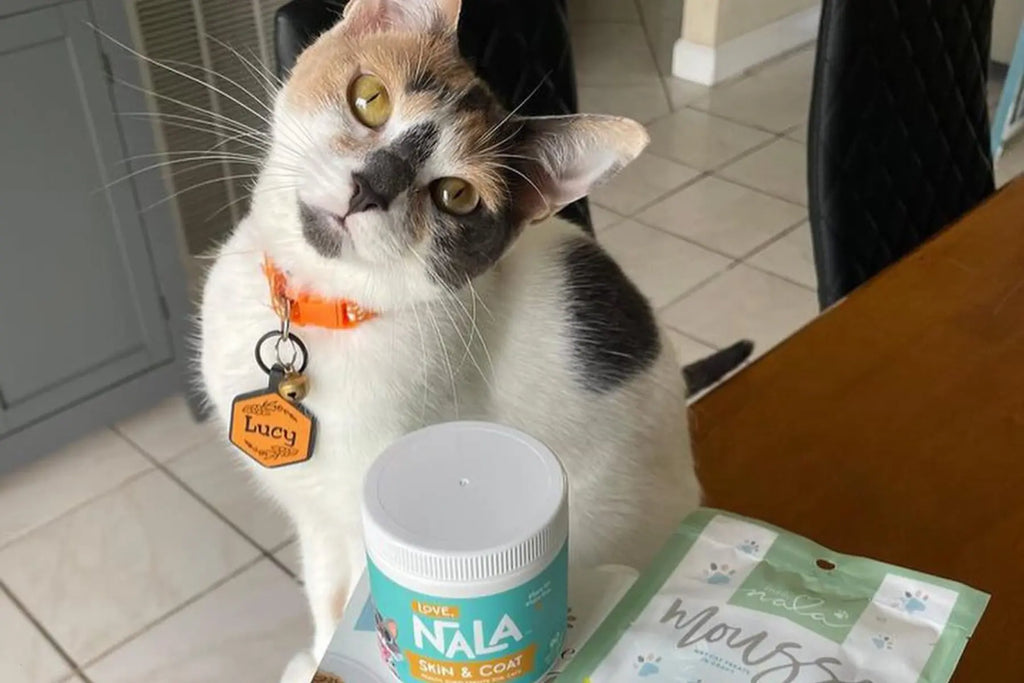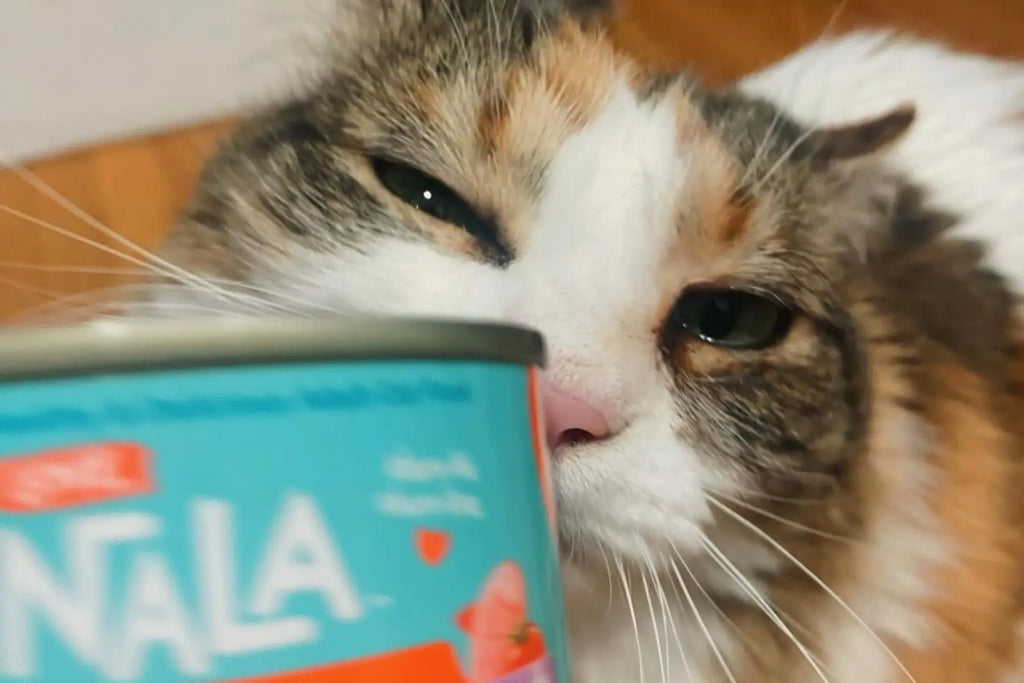Sweet potatoes are a treasure trove of nutrition not just for humans but for our feline friends too. Packed with essential vitamins and minerals, these vibrant orange tubers can offer numerous health benefits when incorporated into cat food. From bolstering the immune system with Vitamin C to maintaining eye health through beta-carotene, sweet potatoes provide a rich nutritional profile that can enhance your cat's overall well-being. This blog delves into the various advantages of including sweet potatoes in your cat's diet, debunking common misconceptions about plant-based ingredients in cat food, and offering practical advice on transitioning your pet to a diet that includes these nutrient-rich vegetables. Whether you're looking to manage specific health conditions or simply improve your cat's dietary regimen, sweet potatoes emerge as a compelling addition to the nutritional landscape of cat food.

The Rich Nutritional Profile of Sweet Potatoes in Cat Food
Beta-Carotene
If you've ever marveled at the rich, vibrant orange color of sweet potatoes, there's a fascinating reason behind it. This color is due to the presence of beta-carotene, a vital nutrient that plays a significant role in health and nutrition. Beta-carotene is a type of carotenoid, naturally found in plants, that the body converts into Vitamin A, an essential vitamin for many bodily functions. In the context of feline health, Vitamin A is particularly crucial for maintaining eye health and ensuring proper vision. Cats, despite being carnivorous and typically relying on a diet rich in proteins and fats, can benefit from the inclusion of certain plant-derived nutrients like beta-carotene in their diet. This is because their bodies are capable of converting beta-carotene to Vitamin A, albeit less efficiently than humans. As cats age, their ability to maintain optimal eye health can diminish, making the addition of beta-carotene through sources like sweet potato an advantageous choice for their dietary needs.
Vitamin C
This essential nutrient is commonly known for its ability to boost the human immune system, but its benefits extend to feline health as well. Vitamin C acts as a potent antioxidant, playing a crucial role in combating oxidative stress by neutralizing harmful free radicals within the body. These free radicals are unstable molecules that can damage cells, leading to chronic diseases and aging. By incorporating sweet potatoes into your cat's diet, you are essentially providing them with a natural source of Vitamin C, which helps reinforce their immune system. This reinforcement makes your pet more capable of warding off various infections and diseases, thereby promoting a healthier and more vibrant life.
Potassium
Potassium, an essential nutrient prevalent in sweet potatoes, plays a pivotal role in several bodily functions, particularly in muscle function and maintaining balanced fluid levels within cells. This mineral is vital for both humans and animals, including cats, for its role in muscle contraction, nerve function, and the regulation of heartbeat. For cats, potassium ensures that their muscles function optimally, enabling them to leap, run, and engage in their daily activities without discomfort. Moreover, it aids in regulating fluid balance in their bodies, ensuring that cellular function is maintained at an ideal level. Without adequate potassium, cats can experience symptoms related to deficiencies, such as muscle cramps, weakness, or even more severe health issues like hypokalemia, which can lead to significant health complications if left unaddressed.
Debunking Misconceptions About Plant-Based Ingredients in Cat Food
Carnivorous Nature of Cats
The assumption that cats need a strictly meat-based diet because they are obligate carnivores isn't entirely accurate. While animal-based proteins should undoubtedly make up the majority of their diet, certain plant-based ingredients like sweet potatoes can be beneficial when added in moderation. A balanced diet can be achieved by combining animal and plant-based nutrients, making sweet potato cat food a solid choice for your feline friend.
Another misconception is that a cat food that cats love must consist solely of meat. Several studies have highlighted the benefits of plant-based nutrients in feline health. For instance, certain fibers found in plant ingredients can aid in digestion and improve nutrient absorption. Thus, disregarding plant-based ingredients entirely would mean missing out on these added health benefits.
Health Conditions Managed or Alleviated by Sweet Potato Nutrients
Vision Problems
As mentioned before, beta-carotene can play a role in maintaining eye health. It's an essential nutrient that can even help in preventing age-related vision loss. Many cat owners are already familiar with pumpkins for cats as a source of beta-carotene. However, sweet potatoes are another excellent source of this vital nutrient. Including sweet potatoes in your cat's diet can go a long way in protecting their eyes as they age. Not only are sweet potatoes easy to prepare, but they can be a tasty treat that your cat will love, making it easier to maintain their vision over the long term.
Weak Immunity
Cats with weak immune systems are more prone to catching infections and other illnesses. Vitamin C is a nutrient that can help in boosting your cat's immunity, and sweet potatoes are packed with it. Whether you go for wet cat treats or prefer air-dried cat food, look for options that include sweet potatoes. These will provide your feline friend with the essential Vitamin C they need to build a stronger immune system. With this little change in their diet, you'll be giving your cat a better chance at fighting off infections and staying healthy in general.

Digestive Issues
Digestive problems, including constipation and diarrhea, can significantly impact your cat's comfort and overall health. Addressing these issues effectively often involves dietary adjustments, particularly increasing fiber intake. Fiber plays a crucial role in promoting healthy digestion by helping to regulate bowel movements and can be particularly beneficial for cats experiencing digestive distress. Exploring the pet store aisles, you'll find a selection of cat-dried food options that boast sweet potato among their ingredients. However, crafting homemade cat food that includes sweet potato not only allows you to control the quality and quantity of ingredients but also to adjust recipes according to your cat's specific dietary needs and preferences.
Practical Tips for Transitioning Your Cat to a Sweet Potato-Based Diet
Gradual Introduction
Introducing a new diet to your cat, especially one that includes sweet potatoes, needs to be done with attention to detail and an understanding of your cat’s digestive health. However, any dietary transition must be approached methodically to avoid digestive upset and ensure your cat accepts the new food. Here's an expanded step-by-step guide:
- Initial Introduction: Start the transition by mixing a small amount of sweet potato-infused cat food with your cat’s current food. This initial phase should involve only about a quarter of the new food mixed with three-quarters of the existing food. The familiar smell and taste of the old food will help your cat accept the addition of new ingredients. This step is crucial as it minimizes the risk of digestive upset by introducing the new food component slowly, allowing your cat's digestive system to adjust to the new fiber content and nutrients found in sweet potatoes.
- Incremental Increase: Over the next week or two, gradually increase the amount of the new sweet potato cat food while proportionally decreasing the old food. Each increase should be small, about 10-15% more of the new food every few days. This slow transition gives your cat’s digestive system the time it needs to adapt to the new diet. It’s important to observe your cat’s reaction to the diet change closely; look for signs of digestive discomfort or disinterest in food, which could indicate the transition is moving too quickly.
- Observation and Adjustment: As you introduce more of the new diet, closely monitor your cat’s reaction to the change. Pay attention to their appetite, behavior, and litter box habits. Some cats may need more time to adjust, especially if they have sensitive stomachs or are particularly finicky eaters. If you notice any signs of digestive upset, such as vomiting or diarrhea, or if your cat seems reluctant to eat the new mix, it might be necessary to slow the transition pace even further. Adjusting the rate of change based on your cat’s specific needs ensures a smoother dietary transition and helps prevent rejection of the new food.
The goal of this methodical transition is to ensure that your cat not only accepts the new diet without digestive issues but also enjoys the health benefits sweet potatoes can provide. Through careful observation and gradual changes, you can successfully introduce new flavors and textures into your cat’s meals, contributing to their overall health and well-being. After completing the transition, continue to monitor your cat’s health and enjoyment of their new diet. This proactive approach ensures your feline friend benefits fully from their new, nutritious diet while maintaining their comfort and happiness.
What to Look for in Labels
Choosing the right cat food from a store can be tricky because not all brands are as good as they seem. When looking at labels, it's important to check that the ingredients are high-quality. Ideally, cat food should have a well-rounded balance of animal-based proteins and plant-based nutrients like those found in sweet potatoes. Be cautious of products that contain artificial preservatives or flavors, as these additives may not be the best for your cat’s health. Remember, the quality of the ingredients will ultimately determine how beneficial the food is for your pet.
Consult Your Vet
A veterinarian's expertise can ensure that any changes made to your pet's feeding regimen are beneficial and safe. They can provide personalized advice based on your cat's health history, current condition, and nutritional needs. Below, is an overview of the essential steps to take when considering dietary modifications for your feline friend:
- Consultation: Engaging in a discussion with a veterinarian is the first critical step before implementing any dietary changes for your cat. A vet can assess your cat's overall health and determine if a diet shift is necessary or advisable. This conversation is pivotal in avoiding unintended health consequences that could arise from well-intentioned but potentially harmful adjustments. The vet's experience and knowledge in feline nutrition and health can guide you toward making informed decisions that promote your cat's well-being.
- Tailored Nutrition: Receiving professional guidance on the specific nutrient proportions that suit your cat's age, weight, and health status is invaluable. Cats have diverse nutritional requirements at different stages of their life, and what works for one may not be suitable for another, especially if there are underlying health issues or weight concerns. Your cat needs a certain combination of proteins, lipids, carbs, vitamins, and minerals for good health and energy levels. A veterinarian can help you understand these needs and suggest a diet plan that will meet those needs.
- Allergy Management: If your cat has shown signs of food sensitivities or allergies, discussing these with your veterinarian is crucial. Allergies can manifest in various ways, including skin irritations, digestive upset, or more severe reactions. A vet can help identify the allergens causing these issues and suggest alternative dietary options that eliminate these allergens while still meeting your cat's nutritional needs. Managing allergies effectively can significantly improve your cat's quality of life and prevent more serious health complications.
- Diet Suggestions: Exploring the suitability of specific diets, such as a cat potato diet, can be beneficial for some felines, especially if traditional diets have led to allergies or other health issues. Potatoes can be a good source of carbohydrates for cats when used appropriately in their diet. However, it's important to ensure that any diet, including those with unconventional ingredients, provides a balanced nutritional profile. A veterinarian can advise whether such a diet is appropriate for your cat and how to integrate it safely into their feeding regimen, ensuring that it contributes positively to their health.
Making dietary changes for your cat is a decision that should not be taken lightly. By considering the detailed steps outlined above and consulting with a veterinarian, you can ensure that any modifications to your cat's diet are made with their best interests in mind. This careful approach helps maintain your cat's health, vitality, and happiness, allowing them to thrive under your care.

The world of feline nutrition is broader than you might think. While traditional diets have their merits, exploring alternative, nutrient-rich options like sweet potato blends could give your cat a health boost. So why limit your choices to what you've always known? Break the mold and offer your pet a balanced, diverse diet. After all, variety is the spice of life — even for our feline friends.
Integrating sweet potatoes into your cat's diet can offer numerous health benefits, addressing various age-related issues and promoting overall well-being. The nutritional profile of sweet potatoes, rich in beta-carotene, Vitamin C, and potassium, not only supports vital functions like vision, immune response, and muscle activity but also helps manage and alleviate conditions such as weak immunity and digestive problems. Furthermore, dispelling myths about plant-based ingredients in cat food is essential for embracing a more holistic approach to feline nutrition. While cats are obligate carnivores, incorporating carefully selected plant-based nutrients like those found in sweet potatoes can enhance their diet, providing a balanced mix of essential vitamins and minerals. This approach underscores the importance of considering the quality and diversity of ingredients in cat food, aiming for a diet that supports optimal health and vitality. As pet owners, it's crucial to be informed and proactive about dietary choices, ensuring our feline companions lead healthy, happy lives. This comprehensive understanding of sweet potatoes' benefits in cat food exemplifies the potential of well-chosen plant-based ingredients to positively impact pet nutrition, encouraging a broader perspective on what constitutes a nourishing diet for our pets.




















